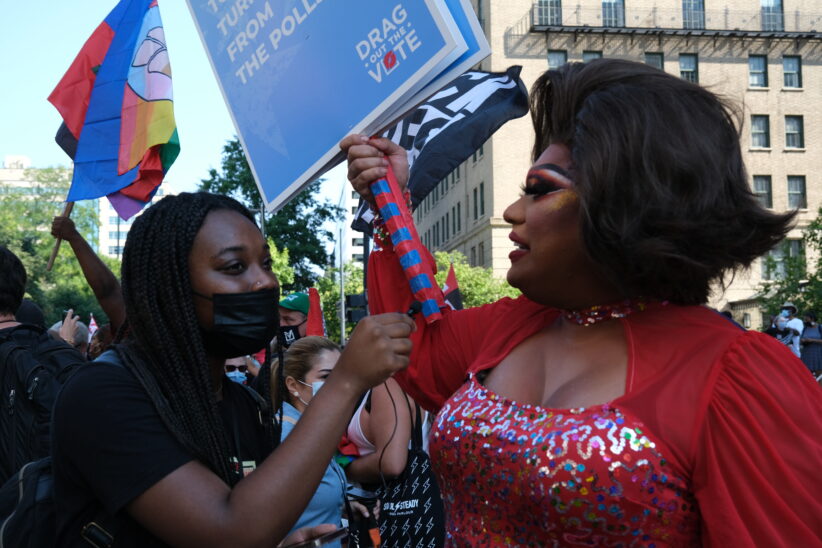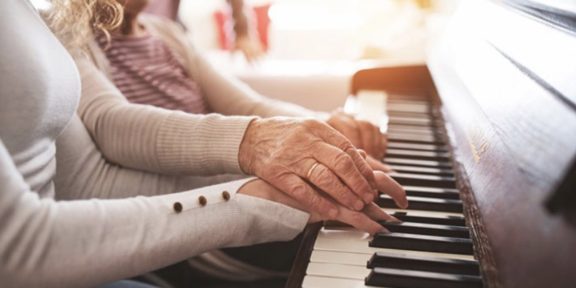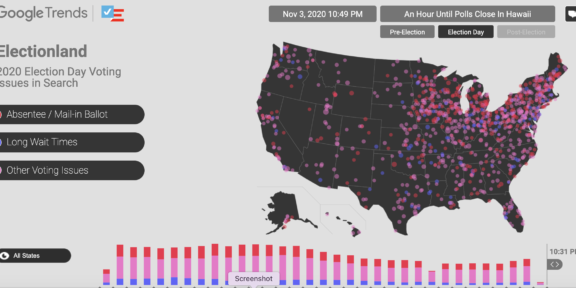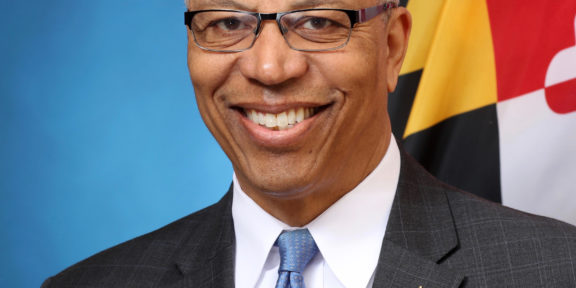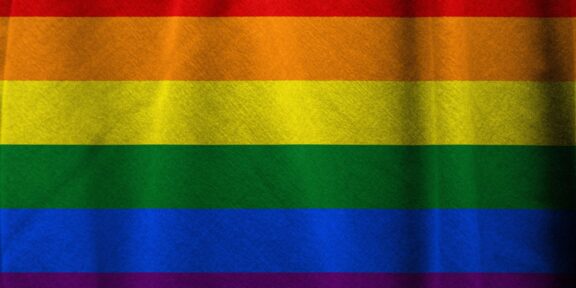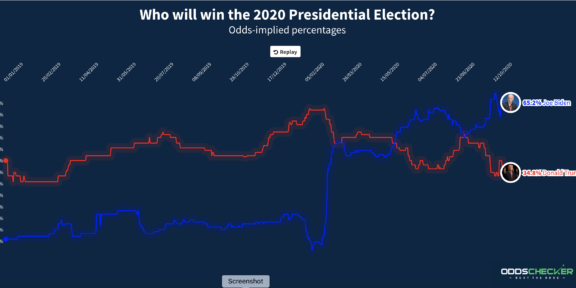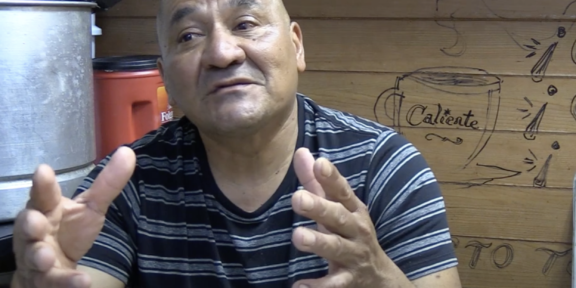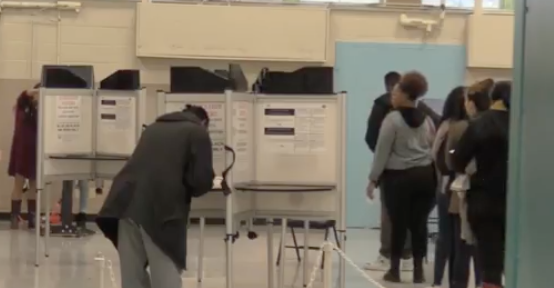By Nyah Marshall, Howard University News Service
WASHINGTON – It would have been hard to miss Brita Filter even if he weren’t at the forefront of the tens of thousands of people marching through the nation’s capital demanding their voting rights be upheld.
Filter, whose real name is Jesse Havea, wore a bright red dress, red eye shadow, a brown wig and held a sign that shouted, “DRAG OUT THE VOTE.”
“No one can ignore a drag queen,” said Havea, national co-chair of Drag Out the Vote, a New York City voting advocacy nonprofit that works with drag performers. “I’m going to sparkle, dazzle, and show them that voting rights is an important cause.”
Havea gave a chant that illustrated the diversity of the march participants.
“Show me what the community looks like,” he chanted to the crowd. “Show me what liberation looks like,”
“This is what the community looks like,” the crowd responded. “This is what liberation looks like.”
More than an estimated 25,000 people from across the nation gathered in Washington Saturday to denounce GOP-led efforts to change voting laws to make it more difficult for Africans to vote. They also urged Congress to pass the John Lewis Voting Rights Advancement Act, a bill that would restore provisions of the 1965 Voting Rights Act.
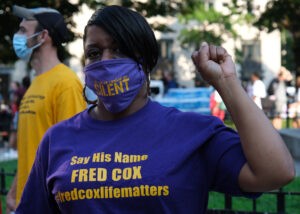
The crowd included people of all ages and persuasions, Black, white, LGBTQ, and advocates and organizations for social justice issues and civil rights.
The march was held on the 58th anniversary of the March on Washington, when 250,000 gathered in the capital to demand equal justice for African Americans the Rev. Martin Luther King Jr. gave the famous “I Have a Dream” speech.
Saturday’s event was dubbed “March on for Voting Rights,” by the National Action Network, one of the organizers of the march.
Tenicka Shannon and her family were among the many people who wanted to highlight issues beyond voting. They had driven from High Point, North Carolina, to highlight the death of Shannon’s son, Fred Cox.
They held signs and wore shirts that said, “Justice for Fred Cox.” Cox was shot to death Nov. 8, 2020, at Living Water Baptist Church in High Point by an off-duty detective. Family members said Cox was trying to get people to safety during a drive-by funeral when he was shot by Davidson County Det. Michael Shane Hill, who claimed he saw Cox with a gun.
“My son was shot in the back twice, shot in the back of the neck once, and shot in the side once, while he was helping people to safety when a gun ignited in church,” Shannon said. The Grand Jury said that there was not enough evidence to charge the county detective that shot him.” As protesters gathered at McPherson Square and made their way to the National Mall, civil rig
Alongside the topic of voting rights. speakers also addressed civil rights and social justice issues like police brutality, gun violence, reparations for slavery, immigration laws, mass incarceration, and hate crimes against LGBTQ people.
Qween Jean, a trans woman and founder of the Black Trans Liberation Organization in New York City, she was at the march to raise awareness for the violence committed against Black transgender women.
“We’re here today to not only to support (voting rights) but to stand in solidarity, and fight for Black liberation,” Jean
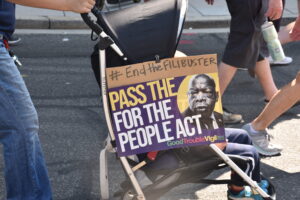
said. “We need to recognize our intersectionality within the Black community. Together, we will get our liberation quicker.”
Marchers held a variety of signs, including “D.C. statehood is racial justice,” “Abolish the filibuster NOW,” “Stop Jim Crow 2.0” and “Protect Voter Rights.”
Chanel Brown, 27, said she came from the San Francisco Bay area in northern California with dozens of volunteers from their local National Urban League to show that voting rights is a cause important to people of all ages.
“We just want to show that millennials are engaged and active on issues,” Brown said, “whether it’s voter suppression, voter apathy.”
Kiana Byrd, 33, a social studies teacher with the Atlanta public school system, said as a teacher and a mother, she felt compelled to be a part of the movement today.
“I feel that this is legacy building,” Byrd said. “I have a son, and I want to make sure what we are doing today sets the foundation for a better life for him tomorrow. “I believe in voting rights. I believe in statehood for D.C.”

